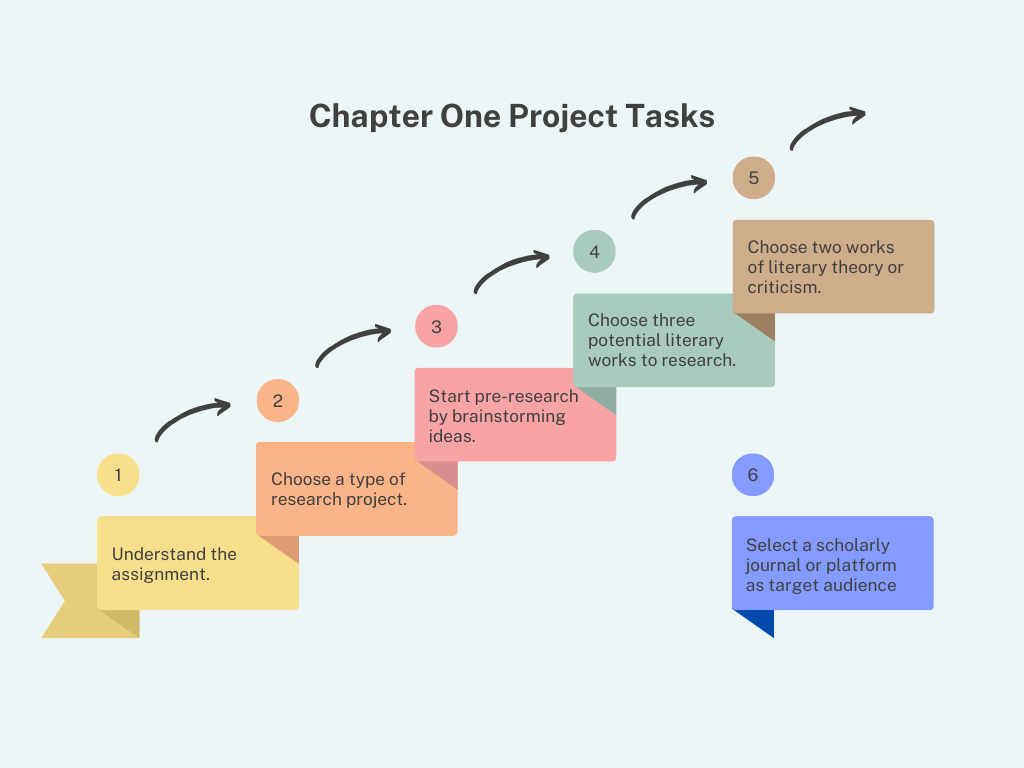Chapter 1 Objectives
Barry Mauer and John Venecek

What is research? It is an attempt to “find out.” Research is ordinary; we do research in our normal everyday lives. Research can range from finding the address of a business to finding a recipe in a cookbook. Much of this ordinary research is for personal ends; we are finding for ourselves what someone else has already found (the address, the recipe). But some research goes beyond meeting our personal needs and has a broader impact on knowledge itself. In science, Charles Darwin worked out the theory of evolution, Albert Einstein worked out the theory of relativity, and Marie Curie worked out the physics of radioactivity. In the humanities, researchers learn how texts are produced and understood. Aristotle discovered the principles of tragic drama, Mary Wollstonecraft helped develop feminist philosophy, and Aimé Césaire coined the term négritude to promote black consciousness. In the humanities, discovery and invention can be synonymous.
To do research for a discipline, such as science and the humanities, is to contribute to our collective knowledge. We seek a passage from the known to the unknown, and then to bring the unknown into the known. Research can be achieved through both ethical and unethical means. Columbus “discovered” the New World by going from the known – Europe – to the unknown – the western hemisphere. His “research methods” included conquest, domination, enslavement, and genocide. He might instead have gathered research by establishing respectful dialogue with the people he encountered. Research in the humanities involves dialogue: inquiry – a give and take – with other people and with texts. Reading itself can be a form of inquiry-based research. While reading, we can inquire about the purpose of a text, its construction, its effects, and so on. Research can aim for the discovery of a new fact – when a text was written, for example – but often it aims to reason from established facts to new conclusions. Sometimes it requires the invention of new concepts (like evolution and négritude).
Note: The admonition to “do your own research” should be taken with a grain of salt. Research in the sciences and humanities is a collaborative process that takes place within a disciplinary framework. The results are shared and critiqued among other people interested in expanding our collective knowledge.
This chapter introduces key aspects of the research process: understanding the assignment, types of research projects, and conducting preliminary research. While understanding the assignment may seem simple, it is frequently overlooked by students who often jump into research without a full understanding of the parameters of the project. This chapter will help you understand assignment prompts, guidelines, and expectations as well as types of literary research papers, intended audience, and the purpose of the project.
In Conducting Preliminary Research, we discuss all that goes into this early inventive stage of the research process. Topics include how to conduct “pre-research” to investigate possible topics, why it’s a good idea to talk with experts, how to understand what types of resources you will need and where to find them, time management, setting benchmarks, and more. Preliminary research sets the foundation for more in-depth research.
Our research projects start with a series of tasks. Each chapter will introduce a new task or set of tasks that – when completed – will provide you with most of the materials for your final research project. In this chapter, we have two sets of tasks: project tasks and organization tasks. The flow chart below provides you with pre-research project steps. Keep track of what you have done for each step and look back at the whole thing to see how the tasks relate to one another.

In addition to project tasks, you also should complete the following organization tasks; these tasks help you to organize yourself and your work and will set you up for success!

 Learning Objectives
Learning Objectives
Focus on the most basic aspects of the research process. By reading this chapter and responding to the related discussion prompts, you will learn to
- understand the assignment before you start researching.
- focus on problems and relevance rather than on general topics.
- talk with experts in your field and with your subject librarian.
- set benchmarks and take lots of notes.
- learn how AI can aid your research.
- set publication targets through cfps (calls for papers).
Being diligent about this early stage will save you time later and decrease your stress throughout the rest of your research project.

